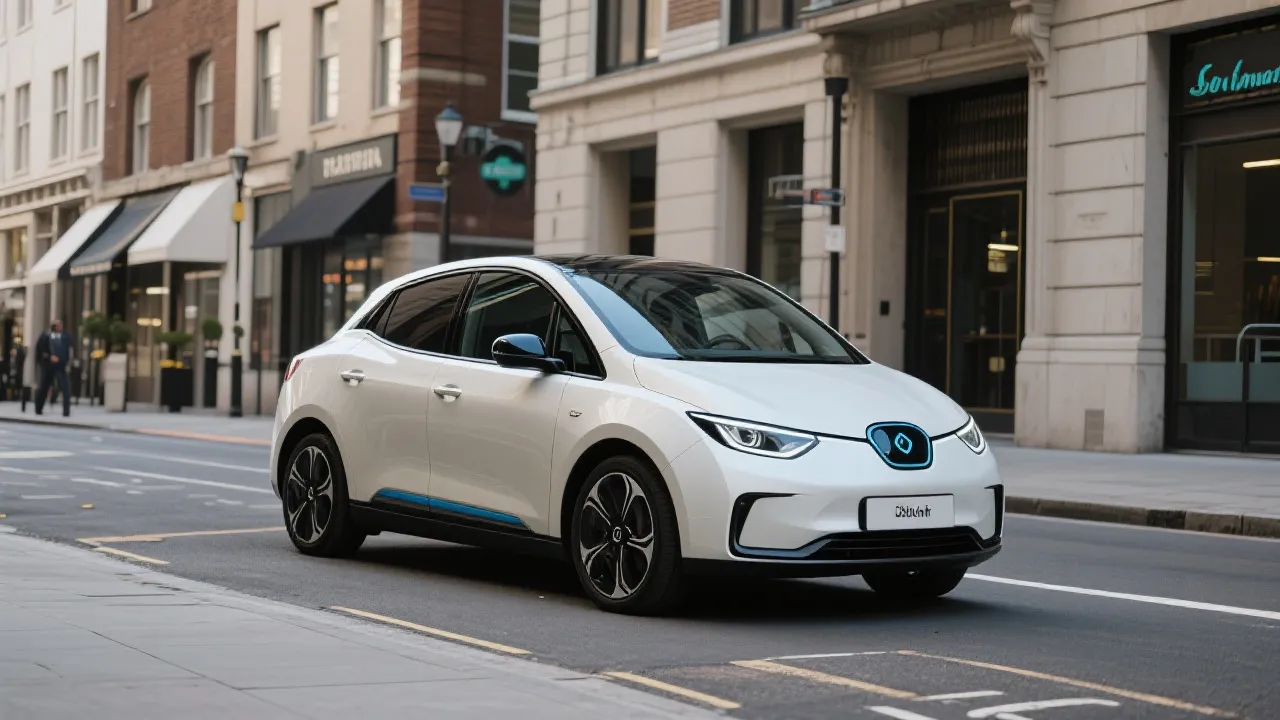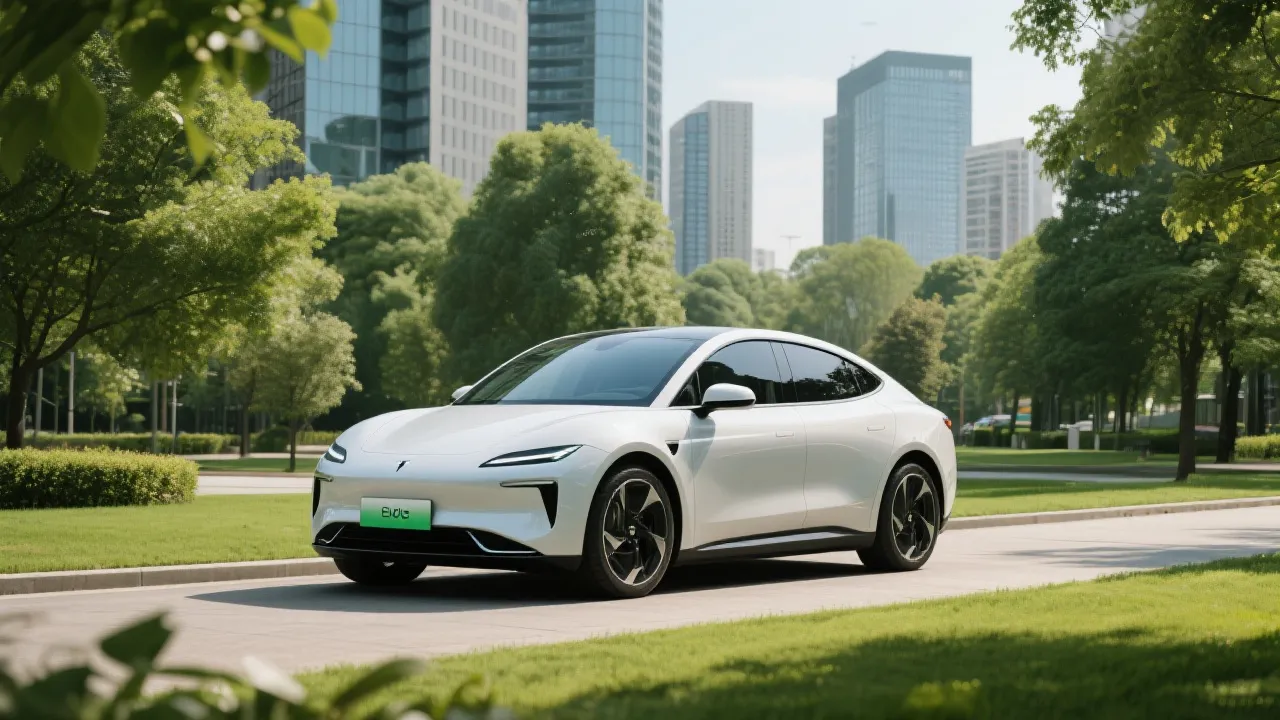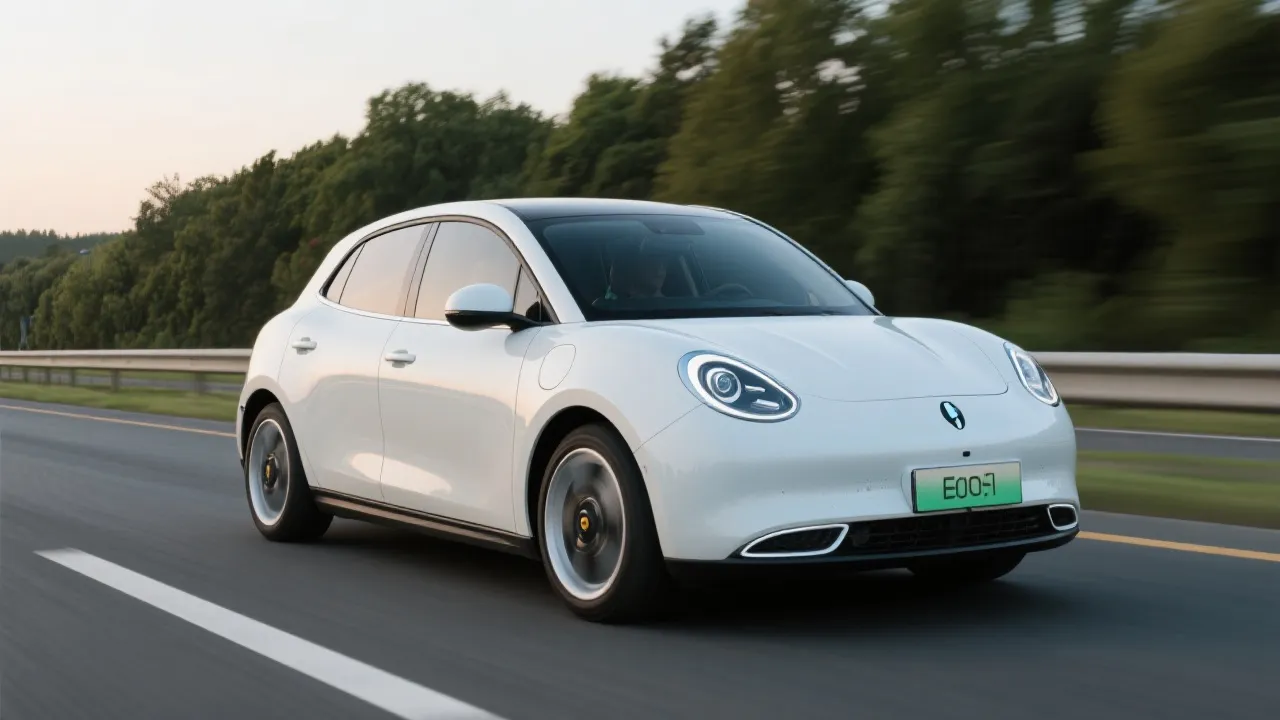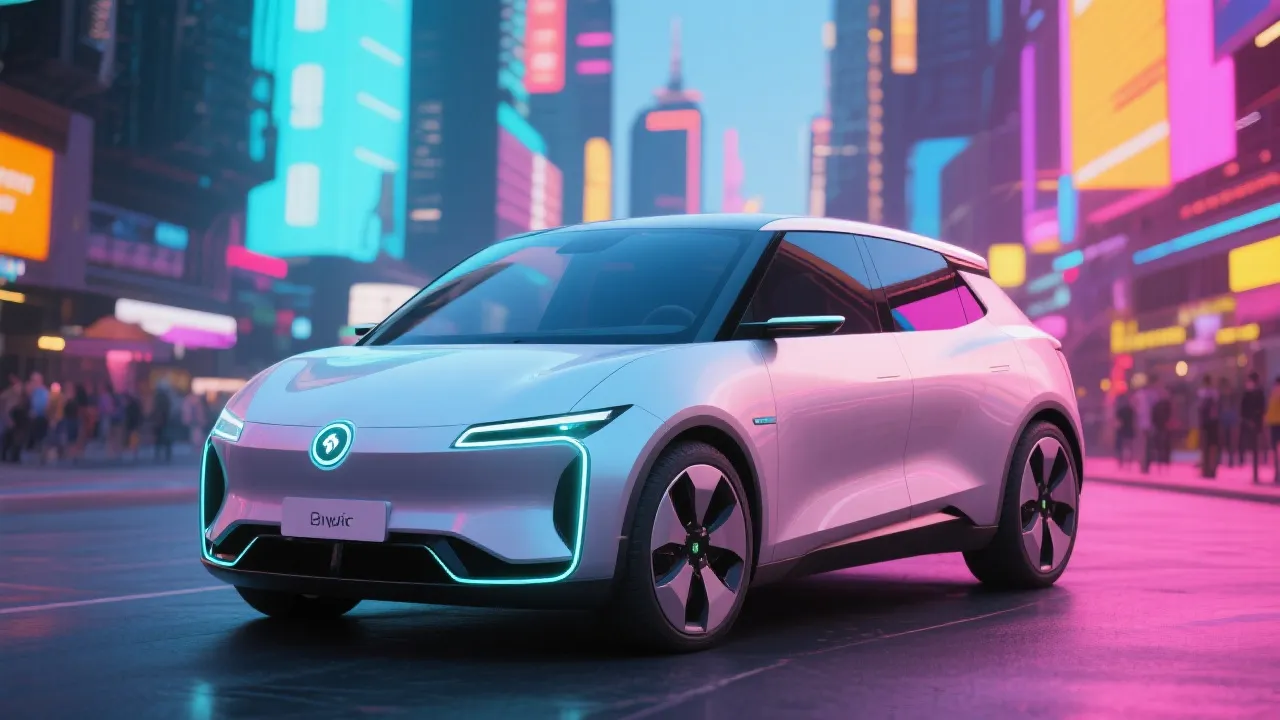Affordable Electric Cars Guide
This guide explores the avenue of acquiring the "सबसे सस्ती इलेक्ट्रिक कार" or the most affordable electric car, emphasizing various options available without a down payment. Electric vehicles are gaining popularity among consumers due to their environmentally-friendly attributes and potential to reduce overall transportation costs. Here, we delve into cost-effective purchasing paths and compare models offering financially accessible terms.
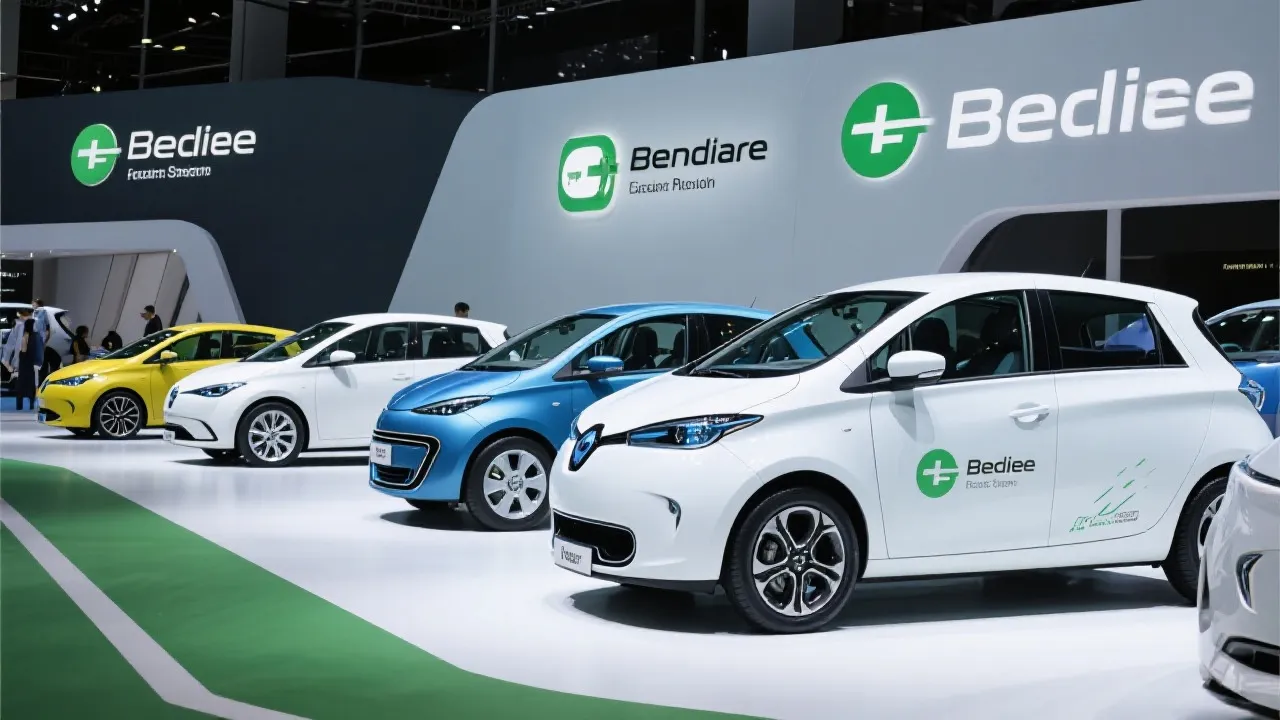
Exploring Affordable Electric Cars
The automotive industry is witnessing a significant shift towards sustainability with electric vehicles (EVs) taking center stage. For those seeking the "सबसे सस्ती इलेक्ट्रिक कार" or the most affordable electric car, a spectrum of options is available. This article aims to guide you through the compelling journey of finding an electric vehicle that suits your budget without compromising on functionality and design.
Why Choose an Electric Car?
Electric cars have garnered attention worldwide due to their environmental benefits and reduced operating costs. The elimination of gasoline engines results in zero emissions, contributing positively to global efforts against climate change. EVs produce significantly less air pollution compared to traditional vehicles, making them an excellent choice for environmentally conscious consumers. In urban areas where air quality is a growing concern, the use of electric cars can directly contribute to cleaner air and improved public health.
Additionally, the lower cost of electricity compared to gasoline and decreased maintenance expenses make EVs an appealing option for budget-conscious consumers. Electric cars consist of fewer moving parts than their gasoline counterparts, meaning less wear and tear, and consequently, lower maintenance costs. For instance, the absence of oil changes and the reduced need for brake replacements due to regenerative braking technology contribute to overall savings over the vehicle's lifespan.
Moreover, the advancements in battery technology have increased the range of electric vehicles, alleviating concerns about running out of power on long trips. Many modern electric cars are equipped with high-capacity batteries that enable them to travel upwards of 200 miles on a single charge, making them suitable for everyday use as well as longer journeys.
Buying an Electric Car with Zero Down Payment
For many potential buyers, financing an electric car is a consideration that involves strategic planning. Fortunately, there are various ways to acquire an electric vehicle with zero down payment options. This is particularly beneficial for those who might not have a substantial amount of savings but wish to transition to a more sustainable mode of transport. Here are some steps to consider:
- Research Financing Options: Many manufacturers offer zero down payment plans. Be sure to thoroughly understand the terms attached to these plans—such as interest rates, duration of the loan, and any hidden fees that may lurk in the fine print. It's vital to compare offers from different dealerships to ensure you are getting the best deal available.
- Evaluate Credit Terms: Your credit score greatly influences the financing options available to you. A high credit score can unlock better financing terms, making the transition to an electric car easier and more affordable. Take the time to review your credit report and improve your score if necessary. Paying down debts, ensuring bills are paid on time, and correcting any errors on your credit report can boost your creditworthiness.
- Consider Tax Incentives: In many regions, governments offer incentives for EV purchases, which can further reduce initial costs and make ownership more accessible. These incentives can take the form of tax credits, rebates, or reduced registration fees. Familiarize yourself with any relevant local, state, or federal programs that can ease the financial burden of buying an electric vehicle.
- Explore Leasing Options: Sometimes leasing an electric vehicle can be less expensive than purchasing outright. Many leasing agreements feature attractive terms that include low monthly payments, potential maintenance coverage, and warranty options that protect your investment. Leasing can be particularly appealing for those who want to drive new models frequently without the commitment of ownership.
Comparison of Electric Vehicles with Zero Down Payment
For buyers in English-speaking countries, several manufacturers promote zero down payment options, making electric vehicles more accessible to a broader audience. The options available cater to various buyer preferences from practical compact cars to spacious family SUVs. Below is a comparison table of some of the leading models:
| Model | Key Features | Financing Terms |
|---|---|---|
| Chevrolet Bolt EV | Long-range battery, advanced safety features, spacious design, and user-friendly infotainment system | Zero down payment available across various dealerships, regional financing options |
| Nissan Leaf | Efficient drivetrain, tech-heavy with advanced driver-assistance features, spacious cabin for passengers | Zero down payment options, interest-free financing for select models |
| Hyundai Kona Electric | Versatile compact SUV design, long driving range, smooth and quiet drive, advanced connectivity features | Zero down payment available, low-interest financing deals |
source: Chevrolet, Nissan, Hyundai
Exploring the Market in Portuguese-speaking Countries
In regions where Portuguese is predominantly spoken, brands have adapted their marketing strategies to make electric vehicles an attainable dream. Companies like Voltz Motors and BYD offer competitive financing options that include zero down payments and interest-free terms, ensuring affordability and convenience in a burgeoning market. The production and sales of electric vehicles in countries like Brazil have soared due to governmental support for sustainable transport solutions, boosting public awareness and interest.
Furthermore, investments in charging infrastructure are essential for the growth of the electric vehicle market. In Brazil, for example, more charging stations are being installed across major cities, encouraging potential buyers to consider electric vehicles without the fear of limited charging options. Local governments are often providing incentives for businesses and homes to install charging stations as well, further facilitating the transition to electric mobility.
Brands like Renault are making headway in the Brazilian market with models specifically designed with local conditions in mind. Renault's Kwid electric variant has garnered interest for its balance of affordability and practicality—essential for urban commuters. Additionally, the presence of local manufacturers such as Voltz Motors emphasizes the potential for growth and adaptation of electric vehicle technology to meet regional needs.
Sources and further details can be found at:
FAQs
- What makes an electric car affordable?
Several factors contribute to affordability, including financing options like zero down payments, tax incentives, lower operating costs, and significant savings on fuel over time. Furthermore, understanding the true cost of ownership—including depreciation—can also help in identifying the overall financial benefits of electric vehicles versus traditional combustion engine vehicles. - Is an electric car suitable for long-distance travel?
Modern electric cars like the Chevrolet Bolt EV and Hyundai Kona Electric come with long-range batteries that make them viable for long distances. Many new models support fast charging technology, allowing drivers to recharge their vehicles quickly during road trips. Additional planning may be necessary to ensure access to charging stations, but the growing network of EV charging infrastructures makes long-distance travel more feasible than ever. - How do I qualify for no down payment plans?
Qualifications vary by lender and generally consider credit score, income stability, and employment history. It's advisable to directly contact dealerships for specific requirements. Many dealers may also run promotional events offering no down payment for certain promotional periods, so staying informed about these opportunities can yield savings. - What are the environmental benefits of electric vehicles?
Electric vehicles contribute to reduced greenhouse gas emissions, decrease the dependency on fossil fuels, and offer improved energy efficiency compared to traditional vehicles. Furthermore, the lifecycle of electric vehicles can be less harmful to the environment, especially if powered by renewable energy sources. As the electric grid shifts towards more sustainable energy production, the benefits of EVs will only increase. - Do electric cars require special maintenance?
While electric cars do require some specific maintenance—like battery health checks and software updates—they typically need less frequent servicing than combustion engine vehicles. Regular maintenance such as tire rotations and brake checks remain significant, but overall costs tend to be lower because of the fewer moving parts in electric vehicles.
The Future of Electric Vehicles
Looking toward the future, the electric vehicle market is poised for dramatic growth. With more automakers announcing plans to transition fully to electric or hybrid models, consumers can expect an influx of new vehicles tailored to various price ranges and needs. Policies aimed at reducing carbon emissions and promoting clean energy are also likely to bolster the adoption of electric cars.
Innovations in battery technology continue to develop, potentially leading to longer ranges and shorter charging times, which will fundamentally change consumer perceptions about electric vehicles. Solid-state batteries, wireless charging technologies, and fast-charging infrastructure will enable drivers to charge their cars in mere minutes, similar to filling up a gasoline tank, thereby making the switch to electric vehicles more convenient.
Furthermore, as public awareness about climate change and environmental conservation grows, consumers are finding it increasingly important to choose sustainable solutions over traditional options. Community-based programs promoting EV adoption and providing education on the benefits of electric transportation can encourage more individuals to consider making the switch.
As we embrace this new era of transportation, the affordability and accessibility of electric vehicles will be critical to widespread adoption. Continued government incentives, technological advancements, and a commitment from manufacturers to provide affordable models while addressing consumer concerns will pave the way for a sustainable future in transportation.
Conclusion
The transition to electric vehicles is not just a trend but a necessary step towards a sustainable future. For those searching for the most affordable options, the marketplace is evolving quickly, offering a rich variety of choices that accommodate different lifestyles and financial situations. With the introduction of zero down payment financing plans, attractive leasing options, and governmental incentives, owning an electric vehicle has never been more accessible.
Ultimately, whether for environmental reasons, cost savings, or the desire for new technology, the move towards electric cars will reshape how society views personal transportation. By taking advantage of the current market dynamics and the pervasive push for green technologies, consumers can find their perfect electric vehicle that not only fits their budget but also contributes positively to the environment.
Disclaimer
1) The above information is sourced from online resources and reflects data as of October 2023. 2) For more precise and updated information, please refer to the official websites listed.







